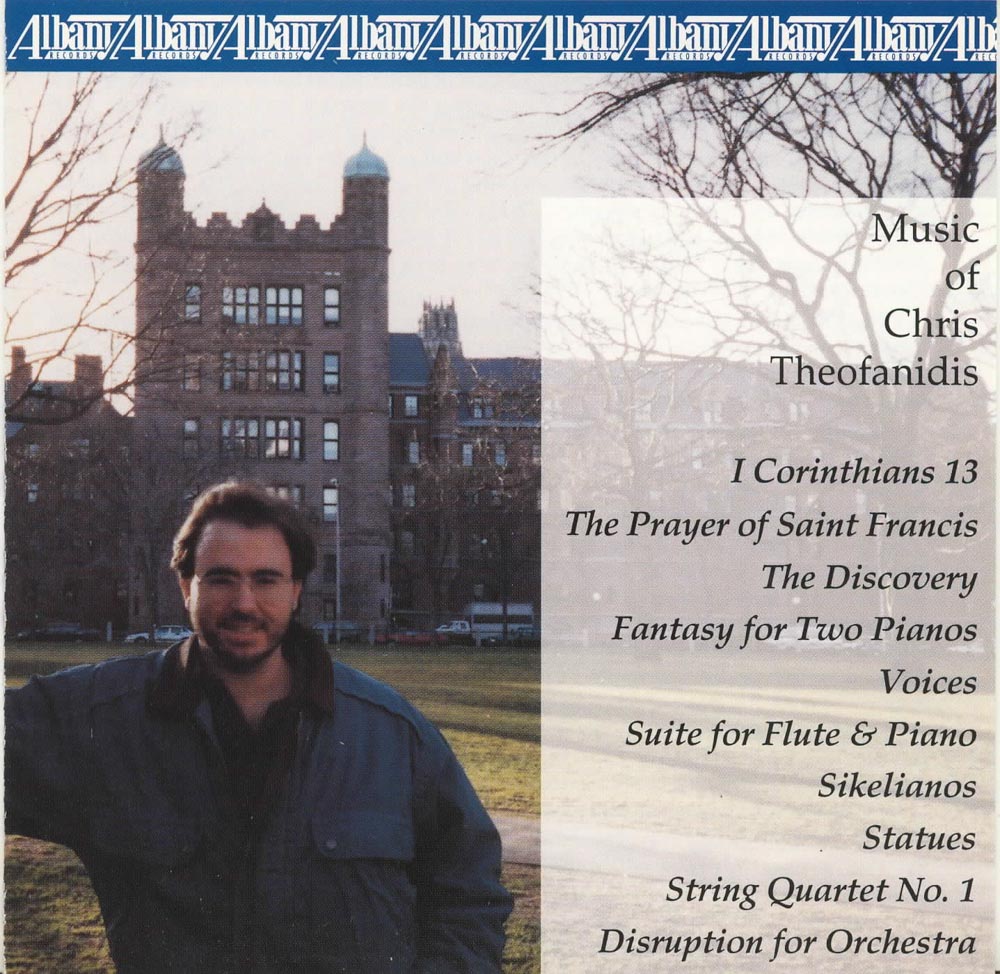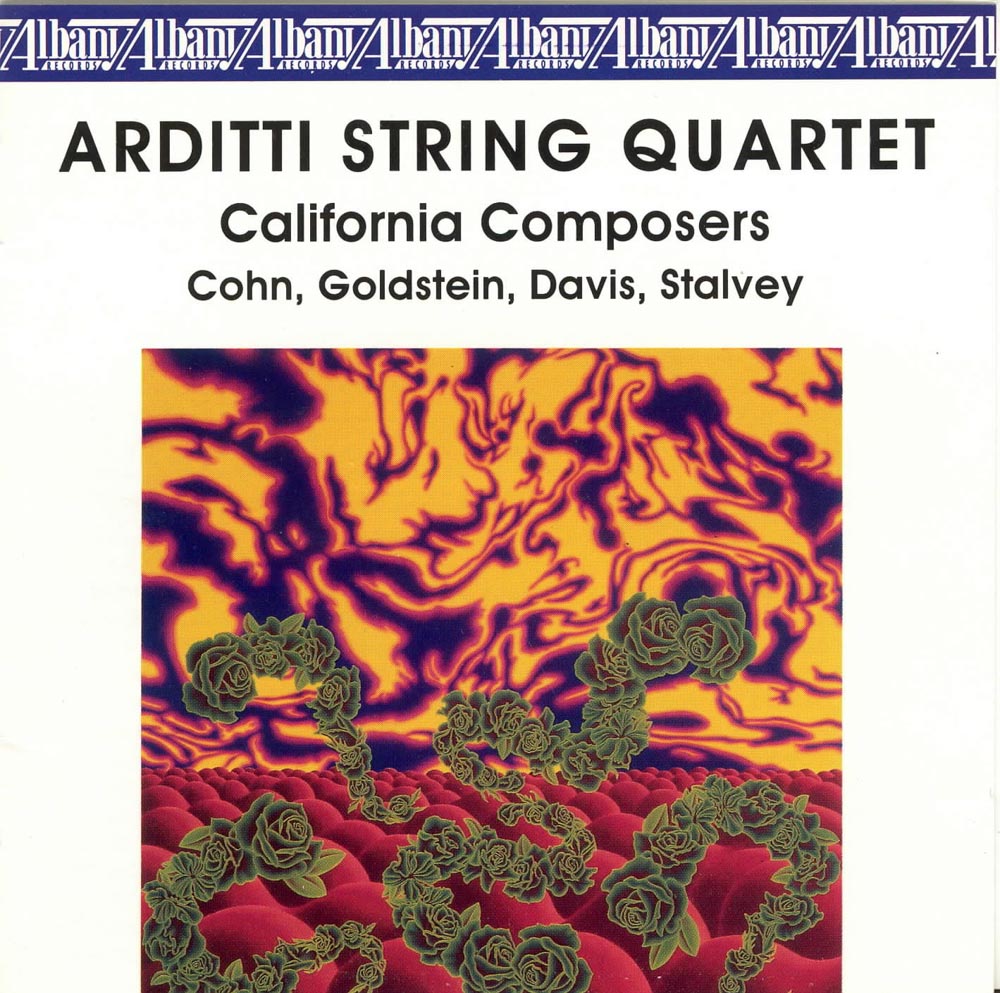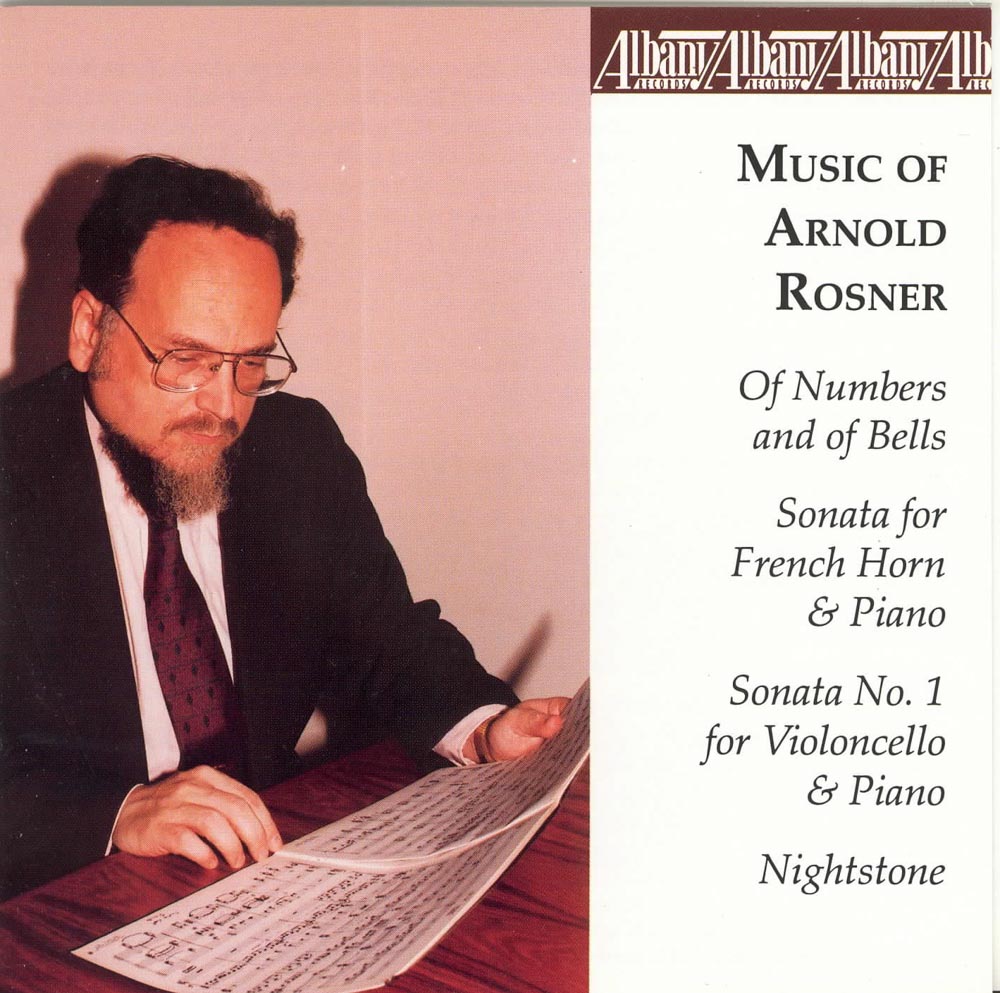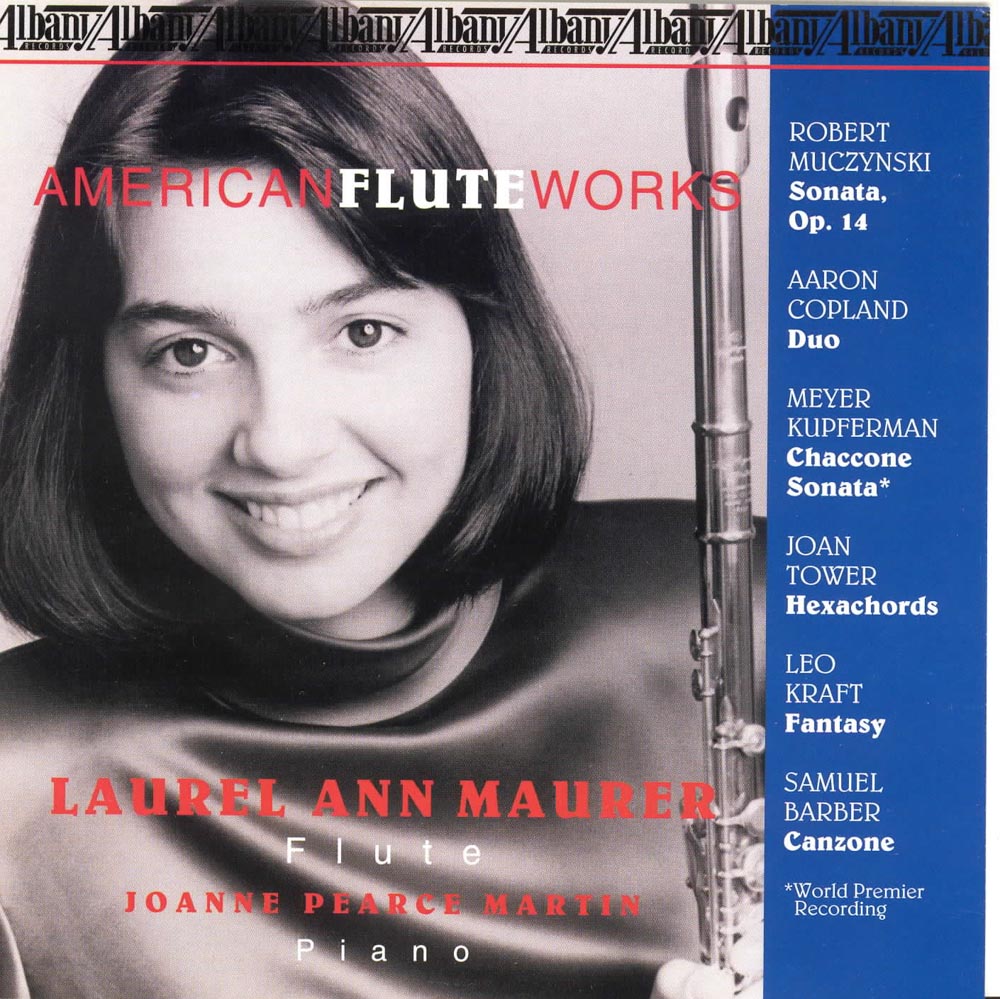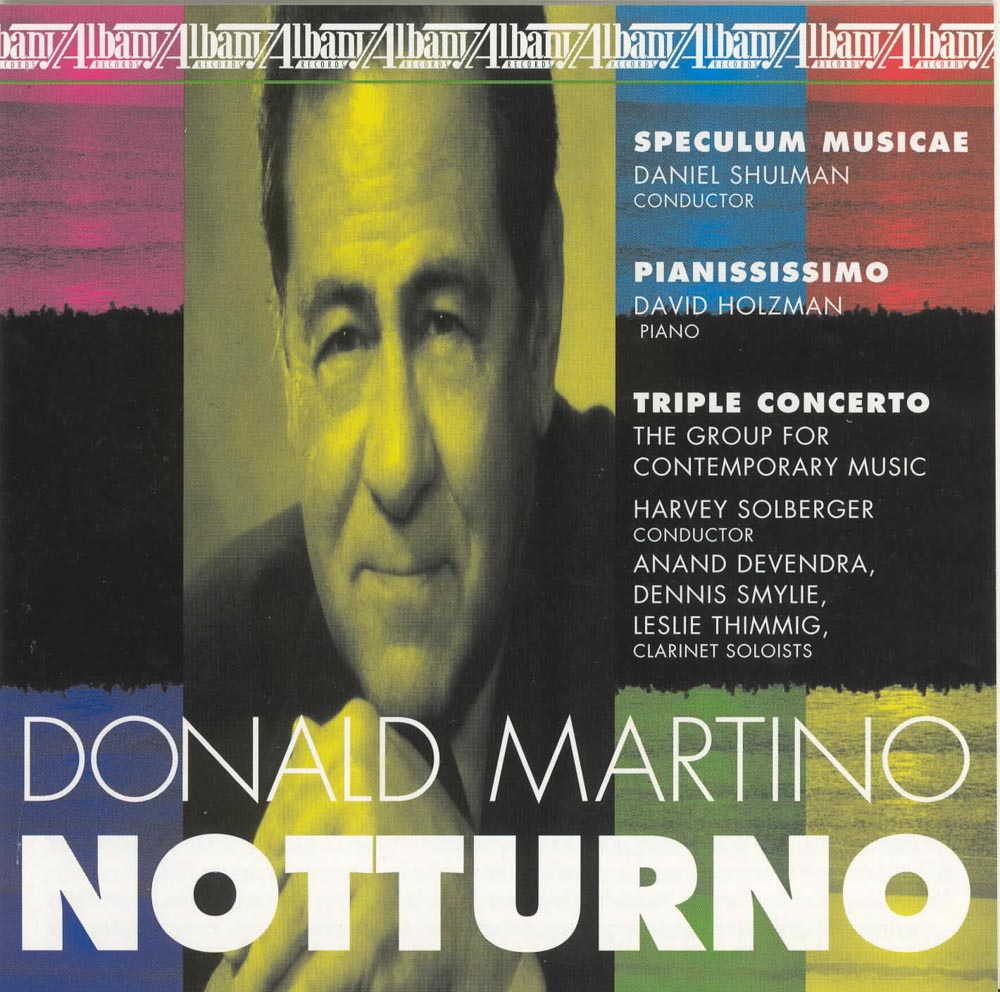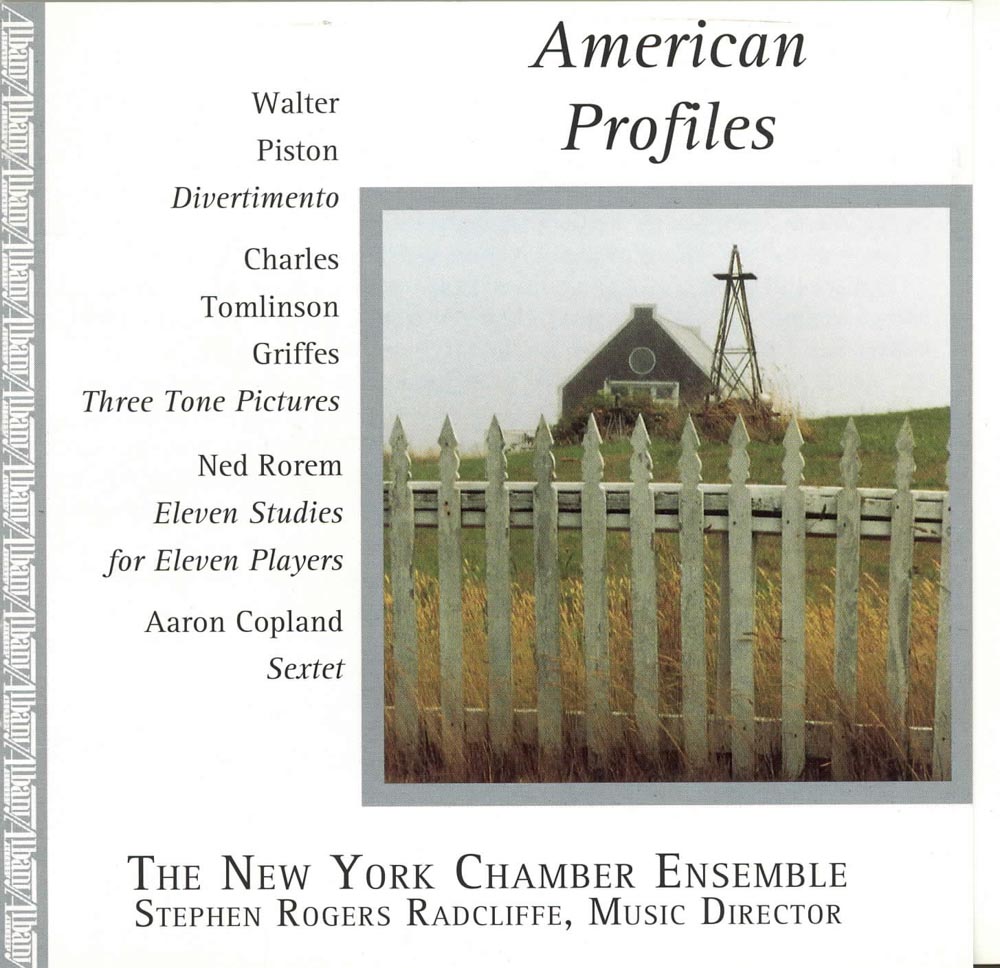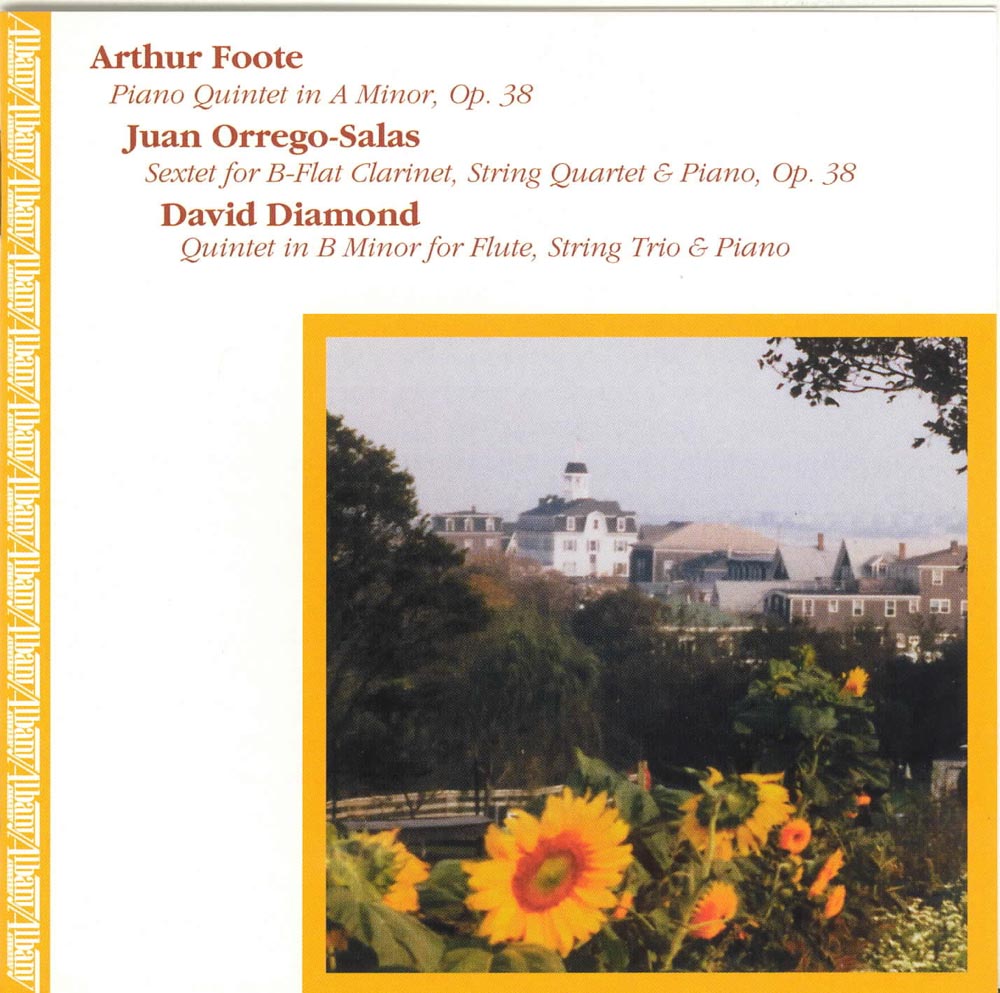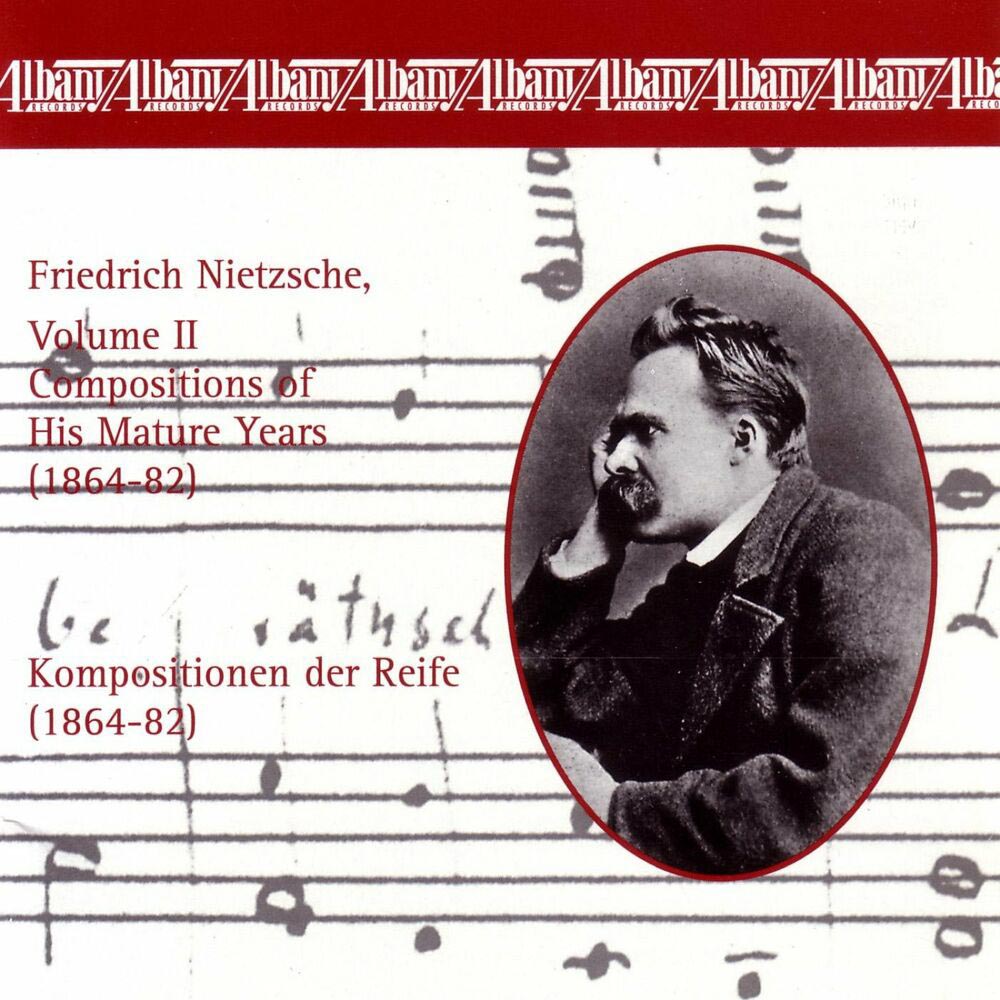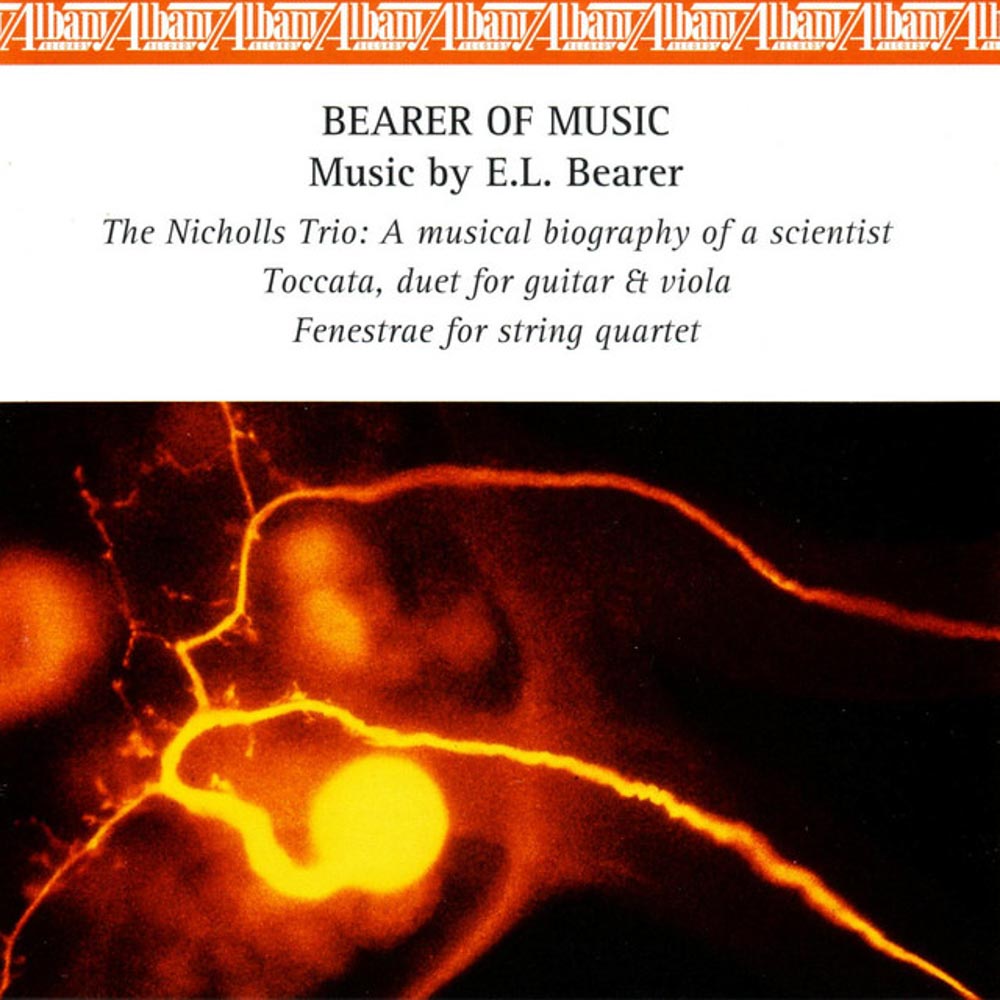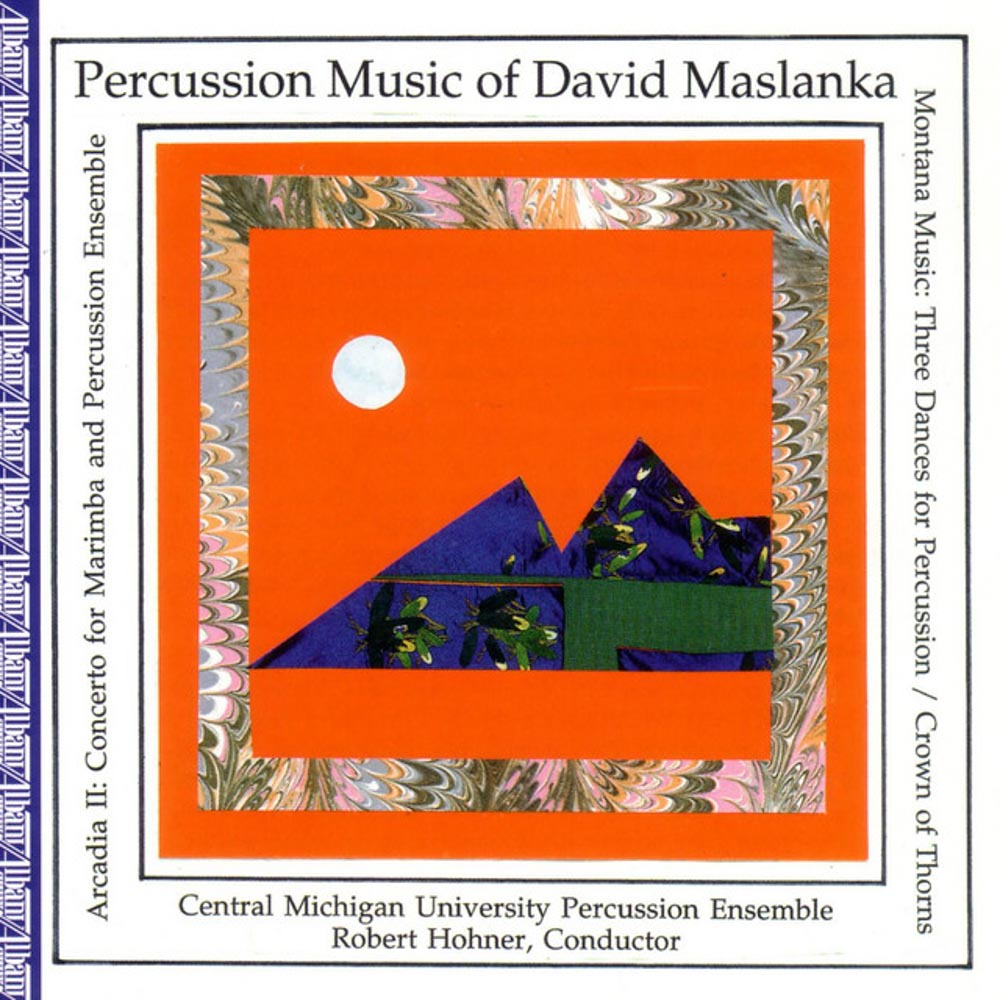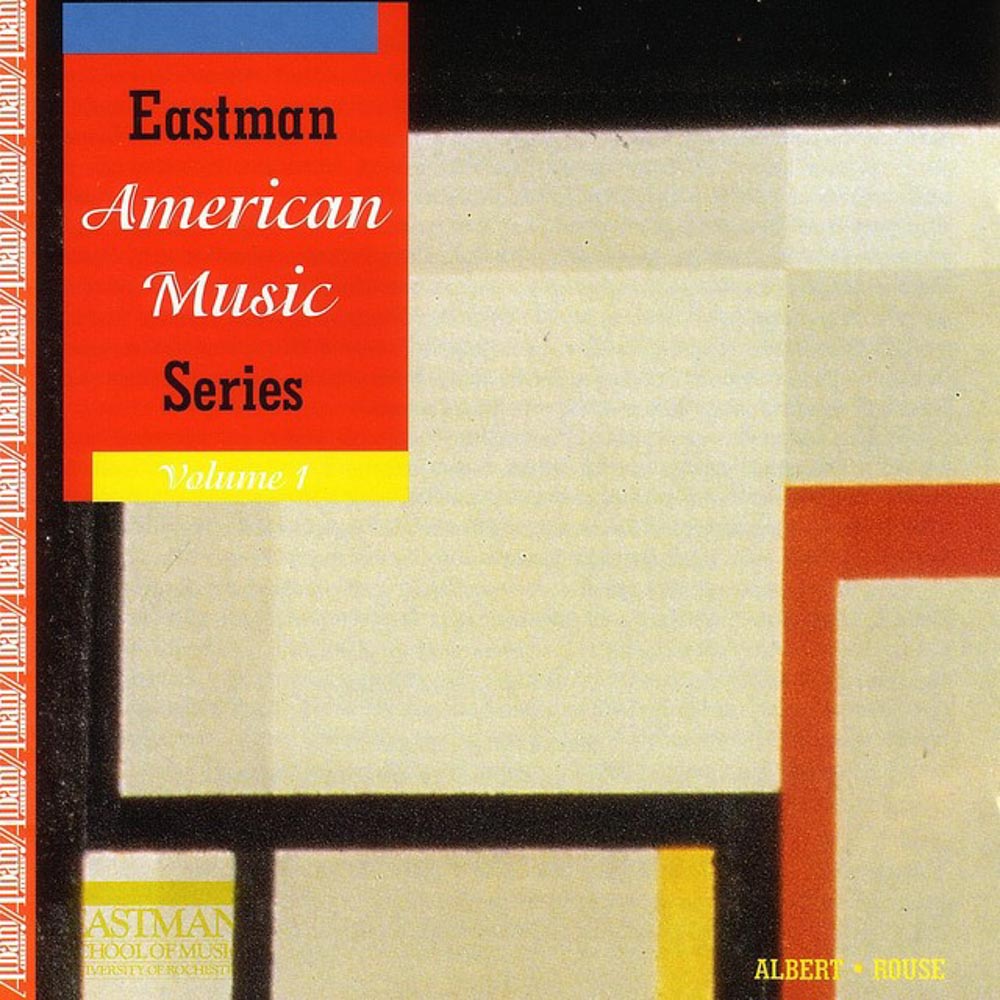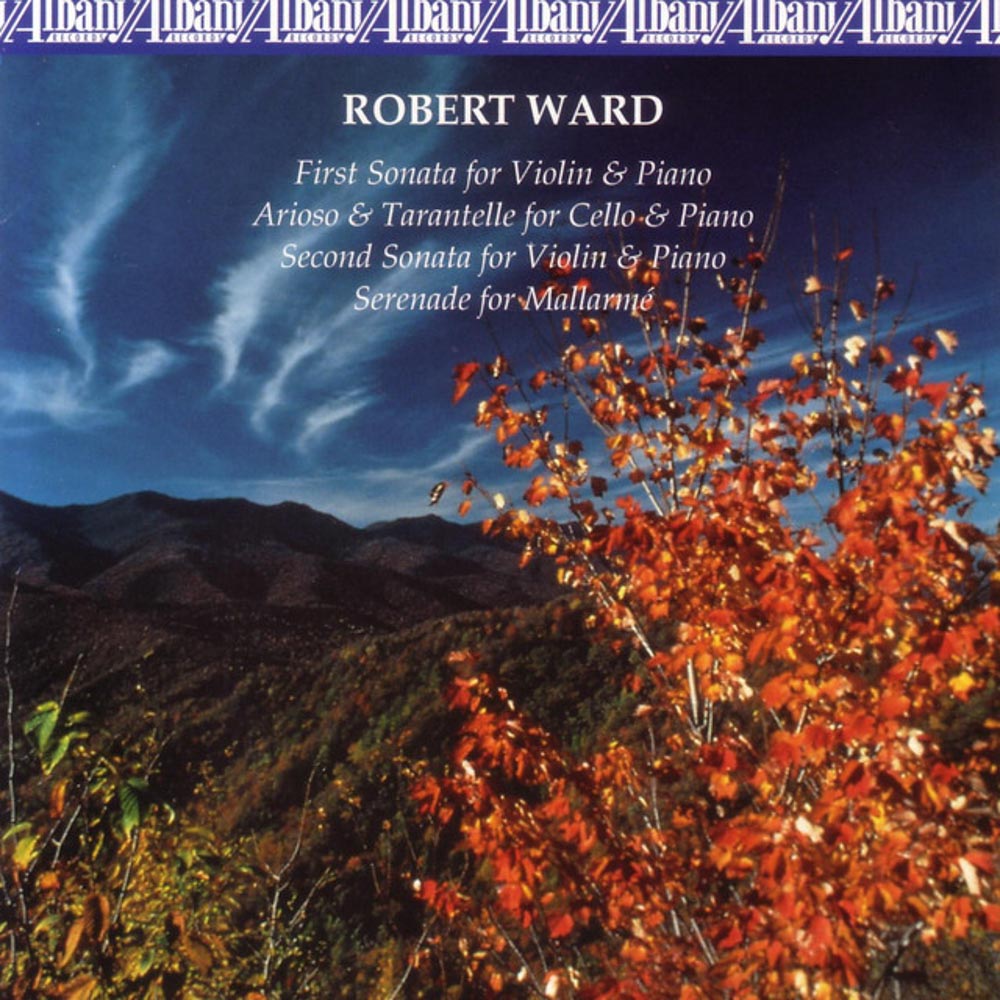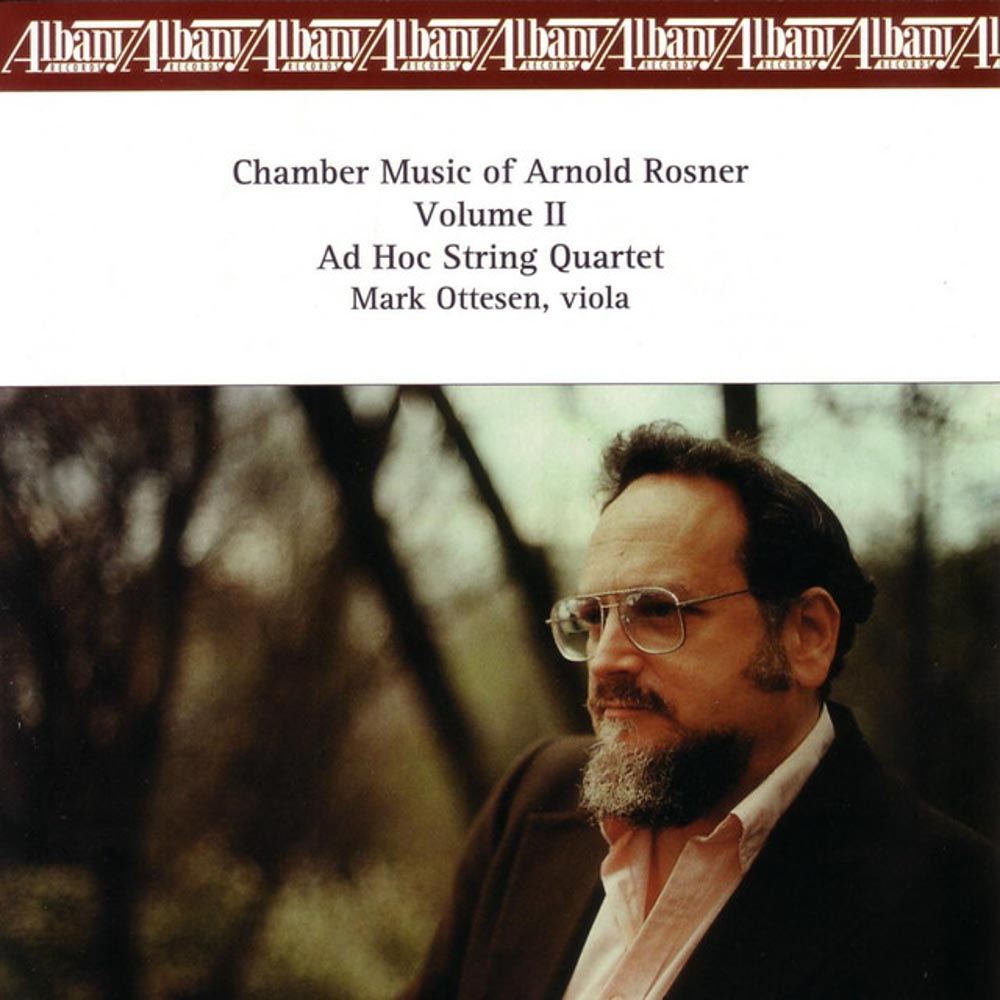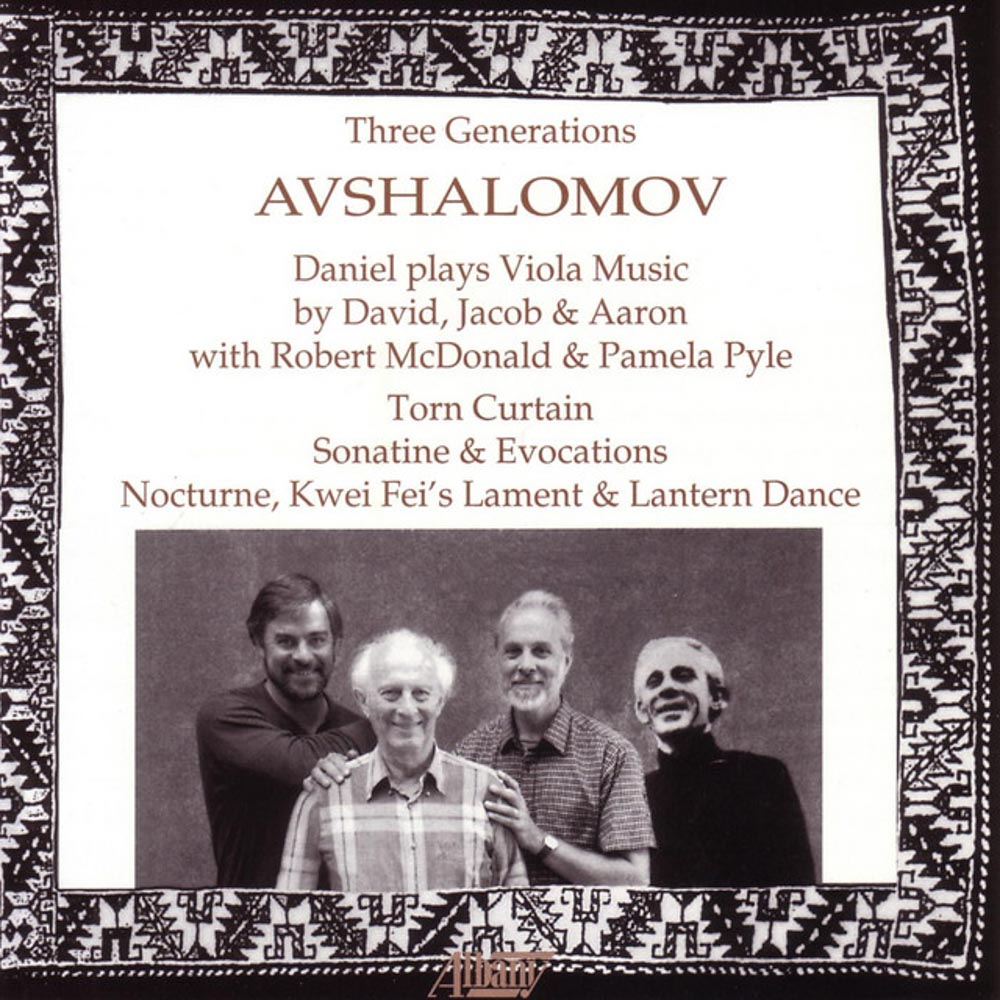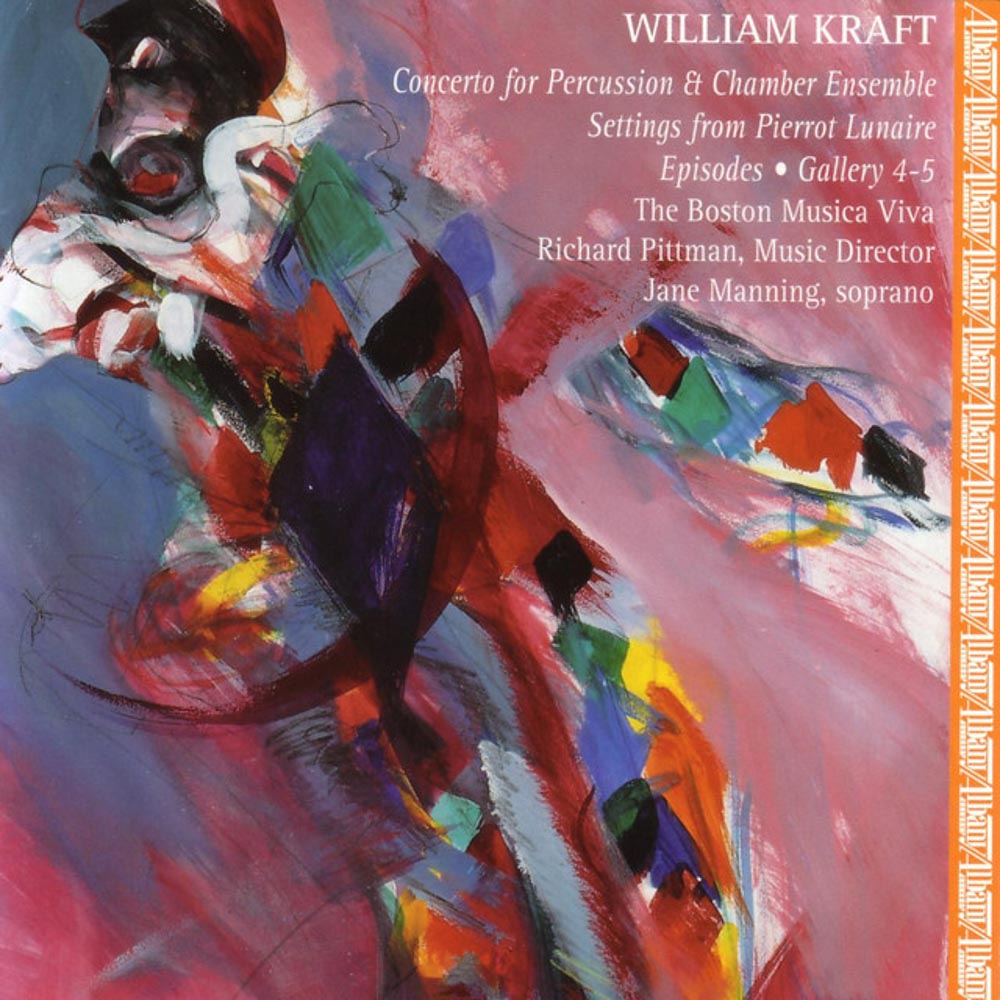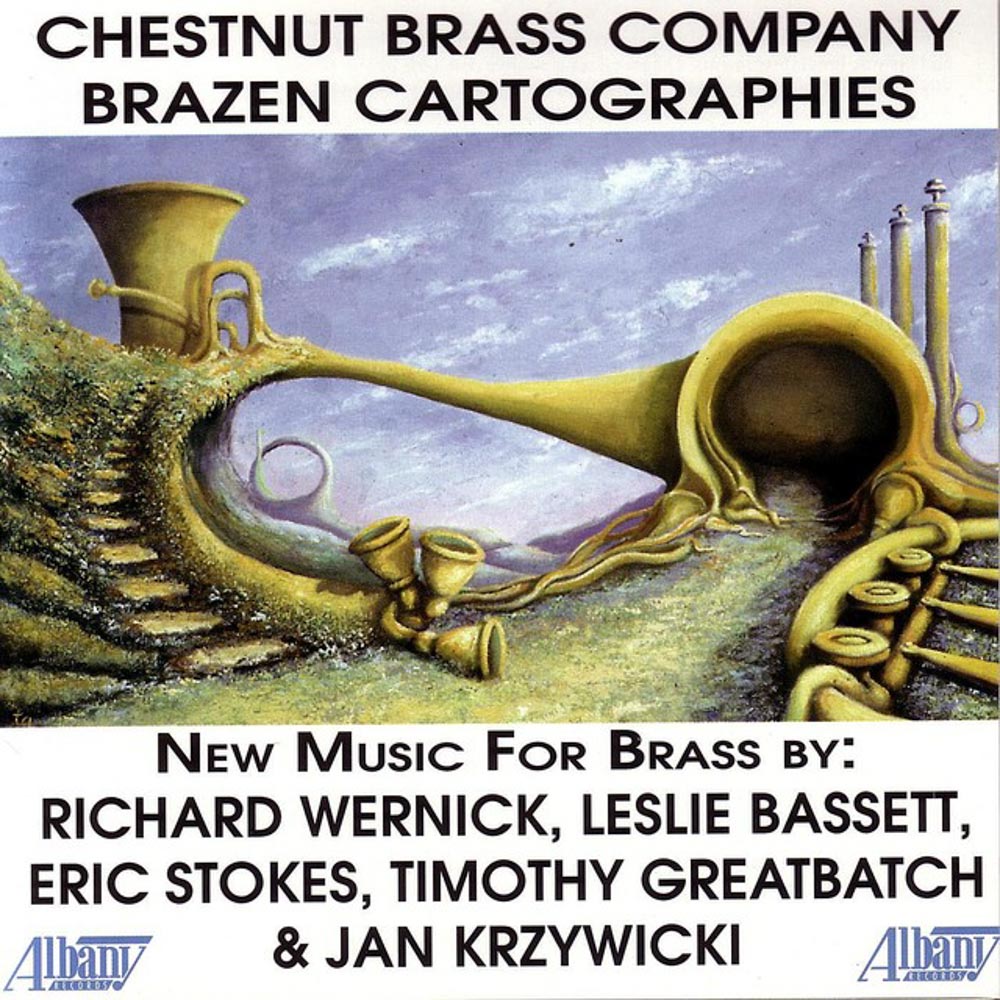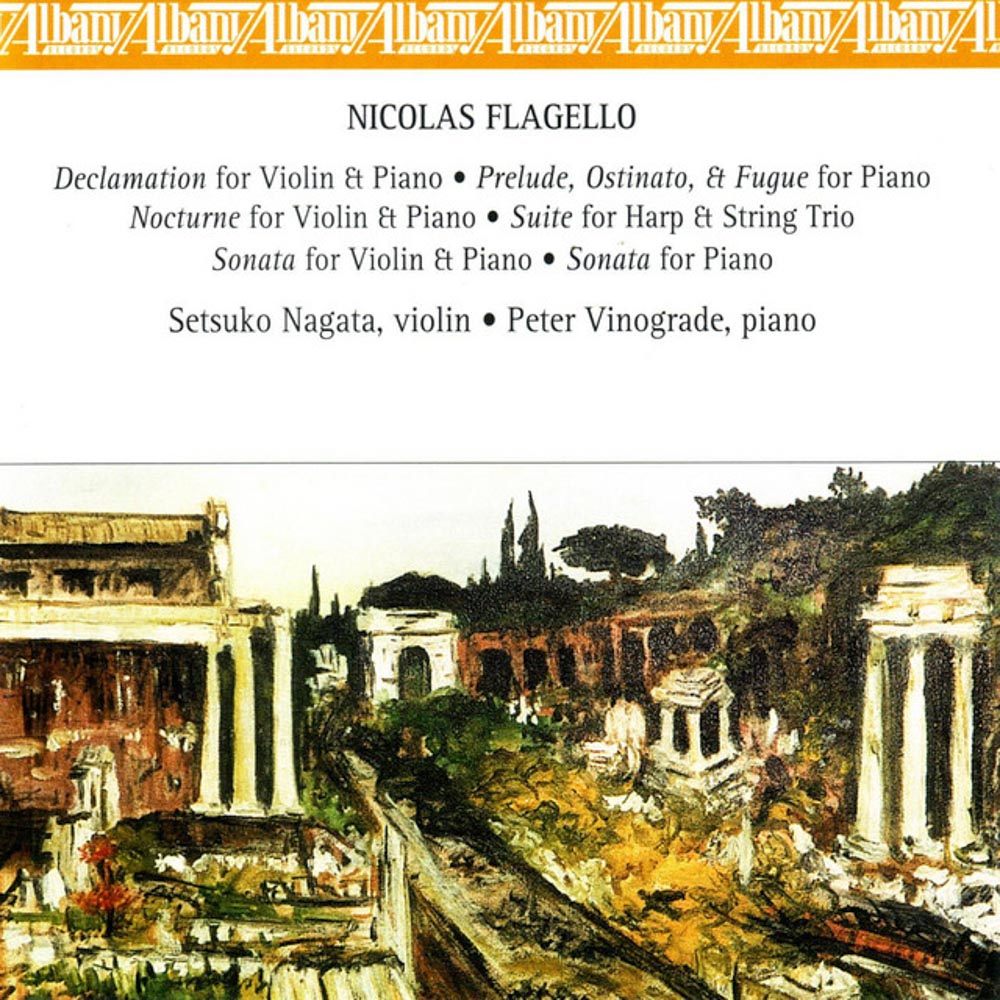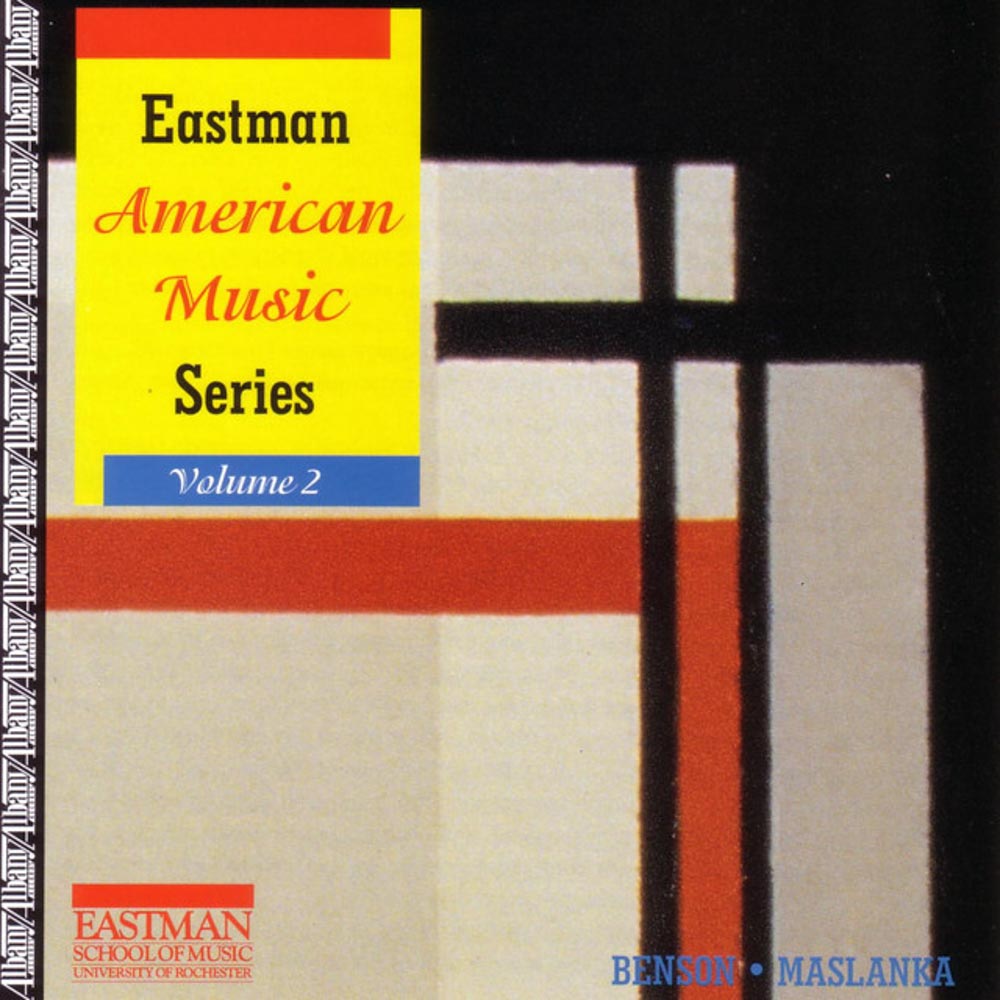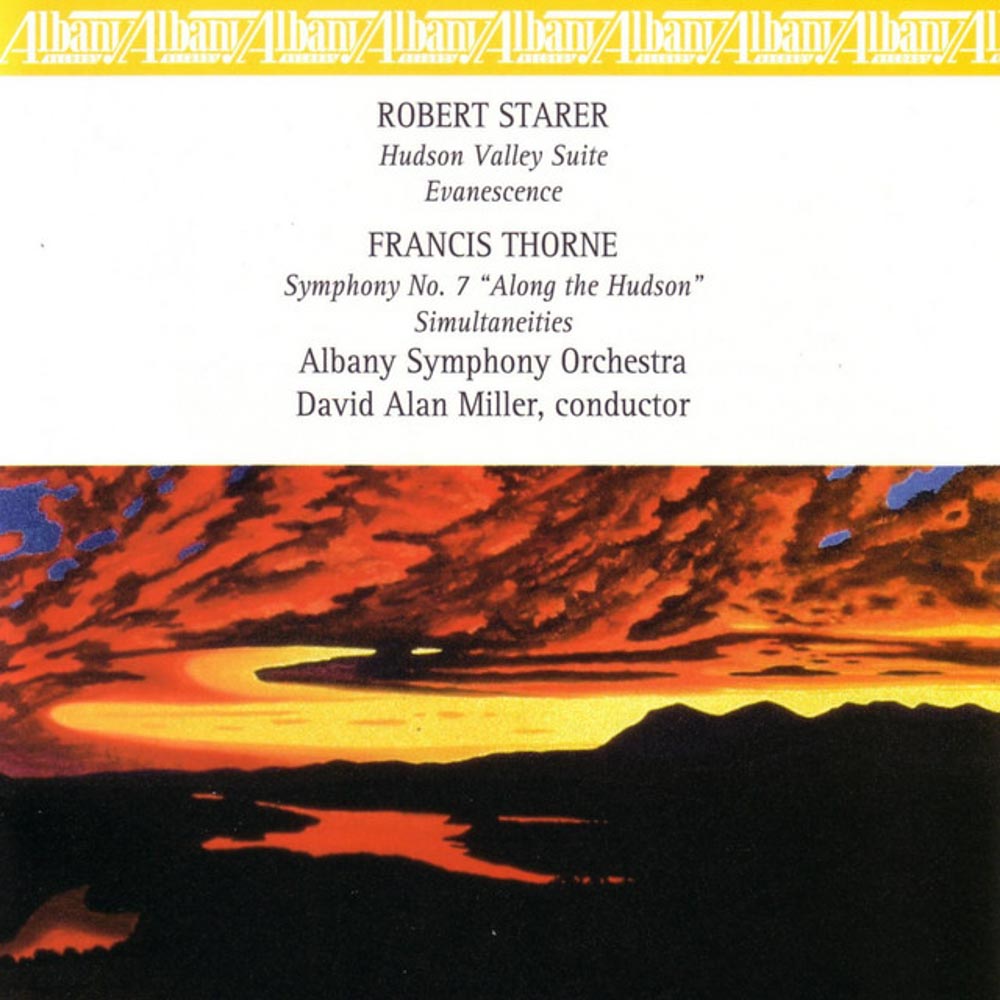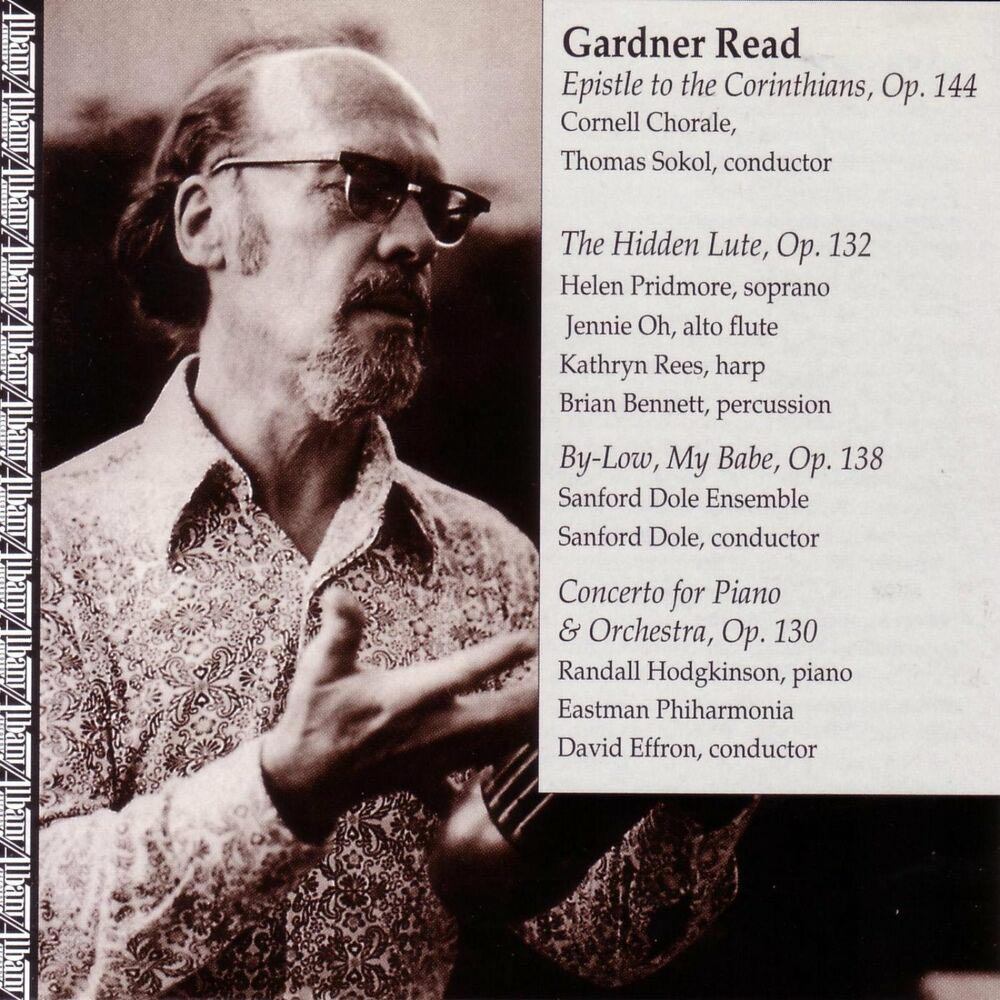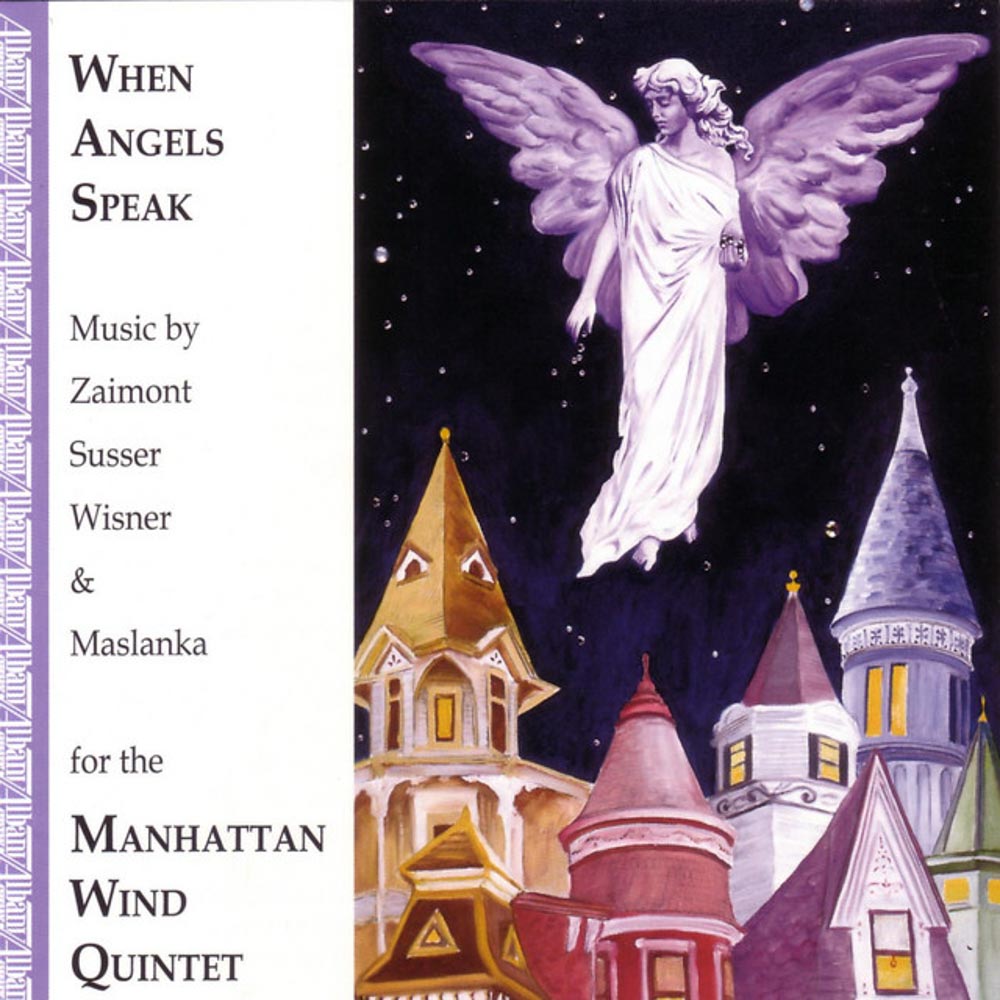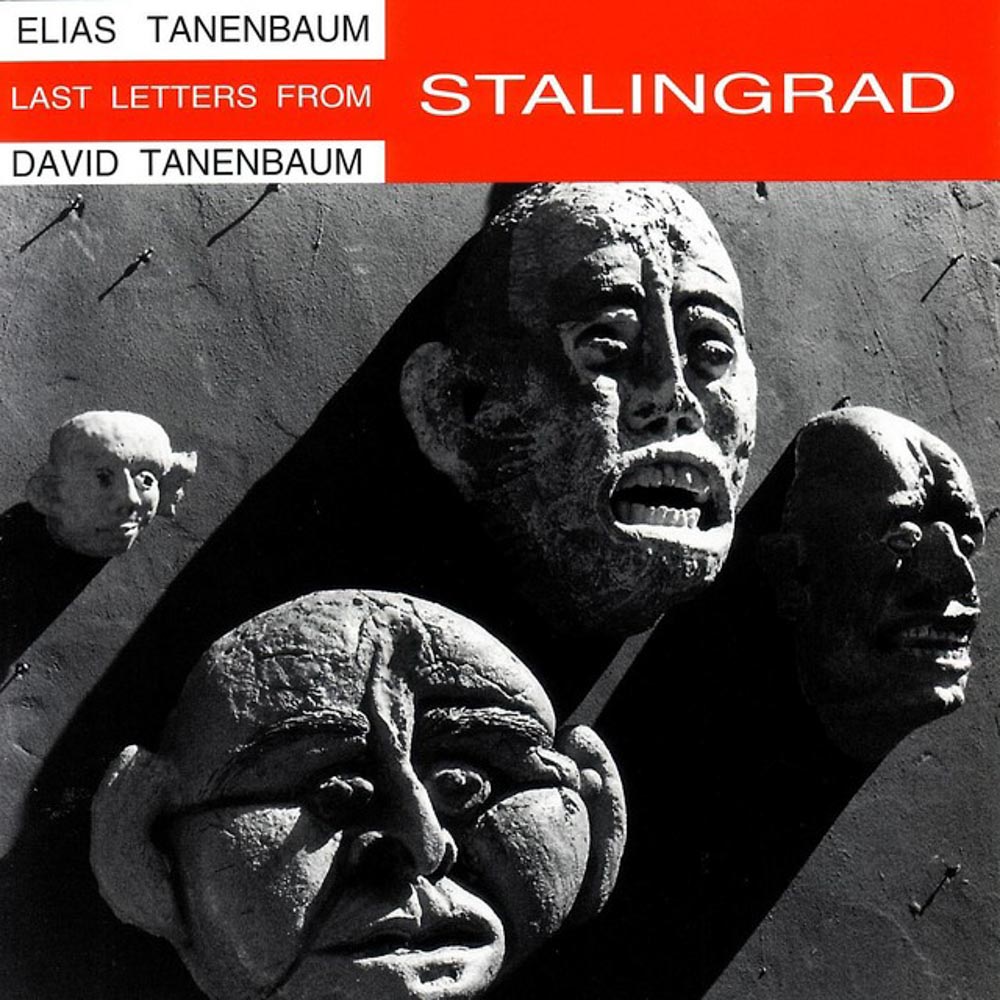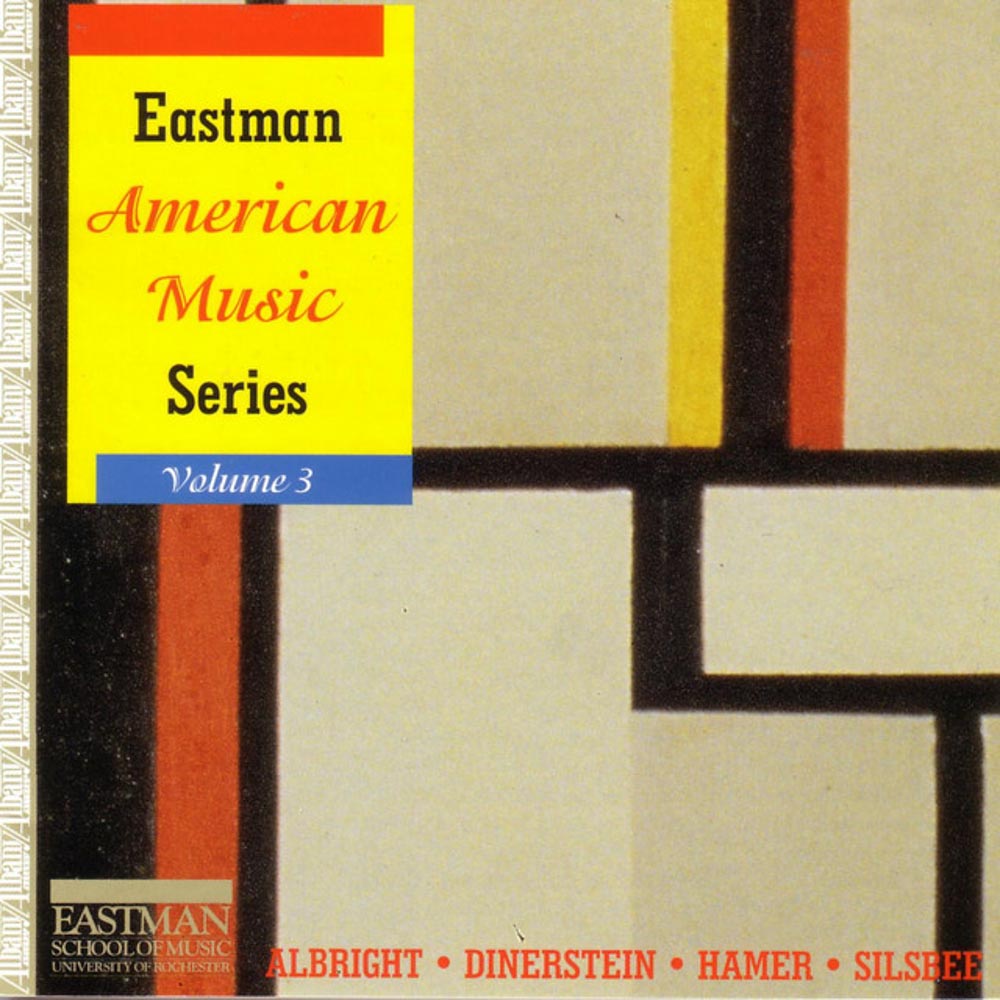Catalog #: TROY0158
Release Date: June 1, 1995ChamberChris Theofanidis was born on December 18, 1967 in Dallas Texas. He studied with Sam Adler, Joseph Schwantner, and Jacob Druckman. His father, Iraklis, was a classically trained pianist and composer from Greece. These are the basic facts. At Albany Records we feel we have an obligation to search out new, young composers and bring their music to you. This recording contains a wide variety of music written in an accessible, tonal idiom.
Catalog #: TROY0159
Release Date: June 1, 1995ChamberThe Arditti Quartet is a phenomenal string quartet. They play new music as if it were Haydn. You will be awed by the performances they bring to this group of young composers from California. This disc is for you if you really enjoy contemporary music, contemporary chamber music, or contemporary American chamber music.
Catalog #: TROY0163
Release Date: August 1, 1995ChamberThis disc features a sampling of the chamber music of Arnold Rosner who was born November 8, 1945. He is a prolific composer whose works have been performed in the United States, Europe and Israel. Today, his works exceed 100. As the notes point out, "he has managed to steer clear, generally, of both the post serial avant-garde movement of the sixties and the minimalist movement that followed. His treatment of harmony and counterpoint, along with the occasional recourse to an ethnic, Middle Eastern flavor, places his music in the esthetic milieu of Paul Hindemith, Ernest Bloch, and Alan Hovhaness. Rosner is currently on the faculties of Kingsborough Community College and Staten Island College of the City University of New York, where he teaches both standard and ethnic music. Having composed since the age of nine, he received advanced degrees from the State University of New York at Buffalo while studying with Leo Smit, Allen Sapp, Henri Pousseur and Lejaren Hiller, a group from which in his own words, "I learned practically nothing." Of the works on this disc, "Of Numbers and Bells," was composed for two pianos in 1983, "Sonata for French Horn and Piano," was composed in 1979, "Sonata No. 1 for Violin and Piano," was composed in 1968 and revised in 1977, and "Nightstone" for tenor and piano was composed in 1979.
Catalog #: TROY0166
Release Date: September 1, 1995ChamberThe American composer, Robert Hall Lewis, graduated with distinction in composition from the Eastman School of Music. His principal teacher was Bernard Rogers. He later studied with Nadia Boulanger in Paris and Hans Erich Apostel in Vienna. His music has been performed both here and abroad most notably by the American Composers Orchestra, the Boston Symphony Orchestra, the Baltimore Symphony, the Netherlands Radio Philharmonic, the London Symphony and the Royal Philharmonic. A frequent lecturer at American and European institutions, he has composed more than 80 works of which 59 are published. Included are four symphonies, four string quartets and nine works for solo wind instruments.
Catalog #: TROY0167
Release Date: September 1, 1995ChamberThe great beauty of this album is the variety of music by fine American composers. From the familiar by Copland and Barber, to the less so by the rest, this is an admirable disc. Robert Muczynski studied with Alexander Tcherepnin at DePaul University. His "Sonata" has been described as an energetic and optimistic work, reflecting the American "can-do" mood of the early 1960s. Leo Kraft's "Fantasy" incorporates some of the "new acquisitions" that were in the air during 1963, including the choice and chance scores of John Cage. About "Hexachords" Joan Tower has written that it is "divided into five sections, which are most easily differentiated by a sense of either going somewhere or staying somewhere." Meyer Kupferman's "Chaconne Sonata" was commissioned by Laurel Ann Maurer and composed especially for her. Only the first movement is cast in the traditional chaconne design. The remaining three movements reflect an ongoing setting of the thematic material drawn from the opening four bar phrase of the chaconne. Laurel Ann Maurer grew up in Seattle where she studied. Later she came to New York where she studied with Samuel Baron, Julius Baker and Jeanne Baxtresser. She has held principal chairs in the National Orchestra of New York, the New York City Symphony, Long Island Chamber Orchestra, Queens Philharmonia and the Chautauqua Festival Orchestra. She is currently principal flute of the Salt Lake Symphony Orchestra and director of American Flute Works.
Catalog #: TROY0168
Release Date: November 1, 1995ChamberThis release contains reissues of the Nonesuch recordings from the mid-seventies. For those who remember these recordings, the sound is every bit as spectacular as it was on the original and the playing is breathtaking. Donald Martino is one of America's most important composers. Notturno for piccolo-flute-alto flute, clarinet-bass clarinet, violin-viola, cello, percussion and piano won the Pulitzer Prize for Music in 1974. The greatness of Martino's music is the manner in which it assaults the ear and the imagination. This makes it such a challenging listen. Andrew Porter described Pianississimo, Martino's exuberant celebration of pianistic possibilities, as "an enchanted journey, through circles where transfigured shades of Bach, Beethoven, Chopin and Ravel sometimes glimmer, in a realm at once welcoming and strange." The Triple Concerto for clarinet, bass clarinet and contrabass clarinet with a chamber ensemble of 16 players was composed on a commission from the Group for Contemporary Music and dedicated to the composer Milton Babbitt on the occasion of his 60th birthday. About this piece Mr. Martino has written: "After some months of unproductive effort and frustration, I realized that I was being hindered by a conception of the work which prescribed, if not a full orchestra, at least a substantial string section. Since it was impractical to enlarge the ensemble (The Group for Contemporary Music), I decided to enlarge the soloist. Only then did the drama of the work reveal itself to me and its execution became clear. My plan was to transform the three separate clarinets into "Superclarinet," a six octave gargantuan who would use the concerto as a world in which to romp and play with the superfriends."
Catalog #: TROY0175
Release Date: September 1, 1995ChamberWalter Piston's "Divertimento" was commissioned by the International Society for Contemporary Music and given its first performance by an ensemble of New York players at Columbia University in May, 1946. The group was conducted by Dmitri Mitropoulos. "The Three Tone Pictures" of Charles Tomlinson Griffes were originally composed for solo piano in 1915. At the request of Caroline Beebe, the pianist and director of the New York Chamber Music Society, Griffes prepared a chamber ensemble version of the "Tone Pictures." This version was premiered in Greenwich, Connecticut, in June 1920, less than two months after the composer's death. Ned Rorem composed his "Studies" in 1959, at the request of Cameron Baird, the head of the Music Department at Buffalo University. He had hired Rorem to teach a class in composition, give some public lectures and compose a work for chamber ensemble. Unfortunately, Baird died before the premiere of the work, which the composer conducted at the University in May, 1960. Copland's "Sextet" is actually a chamber version of his "Short Symphony." The original work was composed between 1931 and 19933. The chamber version, "Sextet," was composed in 1938 and given its first performance at Town Hall in New York by a group of Juilliard graduate students in February 1939.
Catalog #: TROY0176
Release Date: January 1, 1996ChamberArthur Foote was born in Salem, Massachusetts. He entered Harvard at the age of 17 and studied with John Knowles. Paine. In 1875, he received the first Master's degree in music ever given in this country. He was a professional organist active in the Boston area. He was very fortunate in that he could and did compose orchestral music that was performed by one of the best orchestras in the country at the time; the Boston Symphony. He taught music in the Boston area for more than 50 years. In 1944, taking advantage of two successive fellowships from the Rockefeller and Guggenheim Foundations, Juan A. Orrego-Salas left his native Chile to study in the United States with Randall Thompson and Aaron Copland. He has taught extensively in both Chile and the United States. His Sextet was first performed at Tanglewood in the summer of 1954. Mr. Orrego-Salas has composed four symphonies, concerti, two ballets, an opera, a mass, two cantatas and a great deal of film music. This recording of David Diamond's Quintet is issued in honor of his eightieth birthday.
Catalog #: TROY0178
Release Date: January 1, 1996ChamberFriedrich Nietzsche (1844-1900) was fully conscious of his significance as a thinker who would deeply influence the direction of philosophical inquiry of future generations. His reputation as a philosopher is firmly established, but before he engaged himself fully as a philosopher, he had already created a substantial output as poet and composer. Musical composition preceded his involvement with philosophy and is therefore usually considered to be of little importance for an understanding of his thought. Nietzsche himself, however, considered it important that at least some of his music should be known in order to avoid misunderstandings of his basic intentions as a philosopher. In a letter from October 1887, he wrote: "...there has never been a philosopher who has been in essence a musician to such an extent as I am." However, when it came to his music, he did not display his usual assertion of superiority. In the same letter he says: "Even so, it is possible that I might be a thoroughly unsuccessful musician." During his lifetime, his compositions were not accepted as significant, either by his friends or by a wider public. Even after his name had become universally known, his compositions have either remained unknown or have only been accepted as biographical curiosities. Most of his music was written between the ages of 13 and 22. It is the purpose of these recordings to make the sound of these compositions accessible, so that a judgment concerning their style and their value can be made by the listener without having to rely on the judgment of others, even if those others are of the stature of Richard Wagner and Hans von Bulow. This first volume contains music Nietzsche composed before the age of 20. This disc contains a very detailed commentary on his emotional and intellectual development. Since he composed without a teacher, without regular instruction, and with very little external encouragement, this music is also a vivid demonstration of his innate impulse for self-expression, of his independence and of his willingness to accept risk and potential failure.
Catalog #: TROY0181
Release Date: June 1, 1996ChamberThis second volume of compositions by Friedrich Nietzsche begins with works he wrote in 1864, just before his twentieth birthday. During this year, he completed his schooling and commenced studies in philology and theology at the University of Bonn. It was the most productive year in his career as a composer, at least if one considers the quantity of finished works. These include his only completed piece of chamber music, a fantasy for violin and piano, and a song cycle. With the beginning of his university studies, his desire to express himself through music diminished. During his studies in Bonn and later in Leipzig, he wrote only a few occasional compositions: one song, a few small choral works, and some incomplete sketches for larger works. His connection with music took another, more fateful turn through his encounter with Richard Wagner. It was in Leipzig, in November 1868, that Nietzsche met Wagner for the first time. The ensuing friendship with the master and his wife became a matter of pivotal importance for his life, and really provided the impetus for his literary career. On his further development as a composer, however, this relationship seems to have had little influence. After a hiatus of several years during which Nietzsche did not write music at all, there followed a relatively short period, between 1871 and 1874, when he again took up composition. At that time, he had established himself as Professor of Philology at the University of Basel.
Catalog #: TROY0188
Release Date: March 1, 1996Chamber"Requiem Songs was begun about two years after I returned from a four month stay in the former Yugoslavia. It was originally planned to be an upbeat piece, using some of the musical ideas I had collected during my time in the Balkans, but the advent of the war in Croatia and Bosnia left me unable to complete the commission as I had originally planned it. It seemed like the culture I had known briefly was dying, and the appropriate musical response was to write a requiem for it. I briefly toyed with the idea of combining parts of the various liturgies used in the Balkans as source material for the work. However, as I focused more on the nationalistic conflicts which seemed to be springing up throughout eastern Europe and the former Soviet Union in the wake of the collapse of communism, I found myself thinking more and more that this was not about Bosnians and Serbs, but really about all people who see their own national identity as requiring the annihilation of people with another national or ethnic identity. The problem is not limited to victims of Serb or Croat aggression, but rather to the victims of nationalism throughout the world. Screen Scenes is not about anything political, but simply about how we perform music. One of my continuing musical interests over the years has been to find new ways to work with improvisation. I love the kinds of spontaneity and imagination that seem to appear when good improvisers play, and the depth with which ensembles must listen to each other in improvisational situations. On the other hand, as a composer, I also tend to have very specific ideas about how I want a piece of music to sound, how it should develop, how it should be structured, etc. So the problem is: how do I create a work in which I keep the kind of control which is important to me, while giving the musicians the kind of freedom they require for improvisational interaction. Screen Scenes is one answer." Neil Rolnick has been active internationally as a composer and performer of computer music since the late 1970s. He has appeared in concerts throughout North America, Europe and Japan. Currently he is Chair of the Arts Department and Director of iEAR Studios at Rensselaer Polytechnic Institute in Troy, New York. This is a disc of appealing, profound and topical music.
Catalog #: TROY0189
Release Date: March 1, 1996ChamberIn his notes for this release in an essay entitled Music, Medicine and Elaine Bearer, Steven Ledbetter writes: "Elaine Bearer is a remarkable contemporary example of a composer who has also actively followed the very different career of a medical researcher. Already, at a very early age, she was called upon to choose between two passions, and although one or the other seemed to win out temporarily, both have been continuing realms of activity in a busy life. Music first seemed to have the upper hand. She began composing at the age of six. Music continued to enthrall her during her secondary school years and she attended Carnegie Mellon University as a music major, studying composition with Carlos Surinach and Virgil Thomson. In 1967 she went to Paris to study with Nadia Boulanger and upon returning, completed her bachelor's degree at the Manhattan School of Music, where her teachers included Mario Davidovsky. During these years, she also freelanced on the French horn, playing in the American Symphony Orchestra under Stokowski, the Pittsburgh Symphony, and the Orchestre de Paris, under Charles Munch. She received her master's degree in musicology from New York University and began work on her doctorate there. Music would seem to have won out. In 1973, she moved to San Francisco and began teaching music and composing. The composing never stopped, but before long she discovered that teaching solfeggio and dictation to freshman was detrimental to her inner ear and turned to biology, the other subject that had always interested her. Following two years at Stanford to get the medical school prerequisites she had bypassed earlier, she proceeded to the University of California, San Francisco, where she earned an M.D. and a Ph.D., completing both degrees in record time. Then followed a year in Geneva, Switzerland where she joined Lelio Orci's Laboratory at the University of Geneva. Upon returning to San Francisco she did a residency in the Department of Pathology while at the same time, was Composer-in-Residence to the university's symphony Orchestra. In 1991, she moved to Brown University in Providence, Rhode Island, where she holds two appointments, as Adjunct Assistant Professor of Music as Assistant Professor of Medical Science, continuing her active life combining music and medicine." These facts alone should make you want to experience this disc. The music is accessible and appealing.
Catalog #: TROY0190
Release Date: March 1, 1996ChamberThis disc of the percussion music of David Maslanka is appealing on two counts; first it has great sound with good playing, and second, the music itself is terrific. About Montana Music the composer writes: "The work is in three slow movements. They are nocturnal, lunar, inward pieces, dedicated to the spirit of the Earth, which speaks with a particular power in the mountains of my adopted western Montana. The vibraphone is often the center of attention in this music. Its evocative bell-like character may be thought of as a motif for the whole work. Arcadia means a pastoral district of ancient Greece, or any place of rural peace and simplicity. It refers as well, to the mythic land of human origin. The title Arcadia II has a double intent: it is the second piece of mine with the title Arcadia, and it is a musical prayer for the well-being of the Earth. The Concerto uses a traditional concerto form: faster outer movements surrounding a slower middle movement. The first movement arises from the darkness. I remember standing in a New Hampshire meadow on a summer evening. One by one the fireflies lit up until the darkening field was alive with their activity. The tiny opening bell sounds of this movement represent the fireflies. The second movement is a nature meditation. IT comes directly from my walks in Inwood Hill Park in upper Manhattan. The last movement is infused with a spirit of playfulness, light, and simple joy in the glories of nature. The title Crown of Thorns is an obvious reference to Christ's crown of thorns, but the name first came to me as a possible title for a piece from seeing a plant called the "Crown of Thorns" at the New York Botanical Gardens. It is a rambling, thorny desert plant from the Middle East, with small green leaves, and small, very simple and pretty red flowers. The rambling, interweaving, vine-like stems suggested music to me."
Catalog #: TROY0191
Release Date: September 1, 1996ChamberAll the performances on this disc are world premieres. Mario Castelnuovo-Tedesco was born and educated in Florence. He studied composition with Ildebrando Pizzetti and was noticed by Alfredo Casella when he was still a young man. He worked as a pianist and freelance composer until 1939. Then, sensing the approaching danger of the Second World War, he fled fascist Italy and settled in Beverly Hills, California, where he lived and worked until his death in 1968. His early music, with its distinctive use of Italian lyricism combined with the techniques of French impressionism, made him a welcome member of the Italian progressive school. He found his greatest sources of inspiration in the Bible, his Jewish heritage and in his native Tuscany. He was a great melodist and continued to compose right up until the end of his life. Towards the end he also composed music for films. His music was performed by Toscanini, Heifetz, Segovia and Piatagorsky.
Catalog #: TROY0192
Release Date: June 1, 1996ChamberRobert Freeman, then Director of the Eastman School of Music says in the introduction to this recording: "Ever since the appointment of Howard Hanson as Director of the Eastman School of Music in 1924, Eastman has been on a continuing course to encourage the future of music by American composers. From the earliest years of Dr. Hanson's 40-year directorship, Eastman produced each spring a festival of new works by young Americans, including the first performances of Orchestral works by Copland, Piston, Carter, Thompson and Sessions, for example, together with the initial performances of a great many works by Eastman faculty, graduates and students. Recordings conducted by Hanson, of the music of American composers from his own and earlier generations, helped spread both familiarity with many American composers and the reputation of the Eastman School all over the world. In the meantime, the strength of Eastman's composition program remains unabated under the current faculty. We at Eastman are all very proud of the opening of a new recording series with Albany Records, a firm that continues to make the most notable accomplishments in behalf of music in America." We at Albany are equally proud that Dr. Freeman and the musicians at Eastman are working with Albany Records for this historic new series of recordings made in their lovely recording facilities, in honor of their 75 years of service to American music. You, too, will be pleased with this selection of the music of two Pulitzer Prize winning composers: the late Stephen Albert and Christopher Rouse.
Catalog #: TROY0199
Release Date: September 1, 1996ChamberJohn Davison (b. 1930) grew up in upper New York State and New York City. He studied music at the Juilliard lower school, Haverford College, Harvard and Eastman. Among his teachers were Randall Thompson, Walter Piston, Bernard Rogers, Howard Hanson and Alan Hovhaness. He has taught at Haverford College since 1959. His musical idiom is rooted in the great Western classic-romantic tradition with Baroque, Renaissance, jazz, modernist and folk elements mixing in at times. His Sonata for Horn and Piano was composed for the bicentennial of Franklin and Marshall College in 1987. It is a big, romantic work. The Sonata No. 1 for Violin and Piano was composed for the violinist who performs it on this disc, Carol Stein Amado, who gave the work its premiere in the Carnegie Recital Hall in 1976. All the works on this disc are receiving their world premiere recordings. Mr. Davison's music is most pleasing and can be easily enjoyed by anyone who has an interest in twentieth century American music.
Catalog #: TROY0204
Release Date: October 1, 1996ChamberThe fine American composer, Robert Ward, Pulitzer Prize winner for his opera The Crucible, studied at the Eastman School of Music, The Juilliard School, and the Berkshire Music Center. He has taught at Queens College, Columbia University, Juilliard and Duke University where he held the Mary Duke Biddle Chair in Music. He was the Director of the Third Street Music School Settlement, Assistant tot he President of Juilliard and Executive Vice-President and Managing Editor of Galaxy Music Corporation and Highgate Press before becoming president of the North Carolina School of the Arts in 1967. He retired from Duke University in 1988 and since that time has lectured widely in this country, Europe, the Far East and Latin America. He recently won the Gold Baton of the American Symphony Orchestra League and received an Honorary Doctorate of Fine Arts from the University of North Carolina at Greensboro.
Catalog #: TROY0207
Release Date: October 1, 1996ChamberThe Minneapolis Guitar Quartet was founded in 1986. From the beginning, aside from the challenge of learning to play together as a quartet, the musicians dedicated themselves to creating, through commissioning, a larger and more substantial repertoire so that the elegance and power of this medium might be successfully conveyed to a wide audience without excessive reliance on transcription. This recording presents the works of six composers whose creative talents have been focused directly on the quartet medium. The music by Kechley, Bassett, Sekiya, Vandervelde and Hovda was all premiered by the Minneapolis Guitar Quartet. The respective musical styles of these five composers represent some of the variety and wealth of musical expression that has flourished in the late twentieth century. Of the six composers, only Brouwer is a guitarist, familiar with the intricacies of the instrument as well as the guitar quartet medium; ironically his piece is a transcription of his own music. The other composers have had to find their own way - create as they compose. Together, these six are in the vanguard of those helping to create an important body of literature for guitar quartet. This is a most pleasing disc.
Catalog #: TROY0210
Release Date: January 1, 1997ChamberArnold Rosner is a prolific American composer whose works exceed 100 in number and steer clear, generally, of both the post-serial avant-garde movement of the late sixties and the minimalist movement that followed it. His treatment of harmony and counterpoint, along with the occasional recourse to an ethnic, Middle Eastern flavor, places his music in the esthetic milieu of Paul Hindemith, Ernest Bloch and Alan Hovhaness. He is currently on the faculty of Kingsborough Community College of the City University of New York, where he teaches both standard and ethnic music. Having composed since the age of nine, he received advanced degrees from the State University of New York at Buffalo while studying with Leo Smit, Henri Pousseur and Lejaren Hiller, from all of whom, in his own words, "I learned practically nothing." Founded in 1990, the Ad Hoc String Quartet has established itself as one of the Chicago area's leading Chamber ensembles. In September 1993, they gave the world premiere of Rosner's String Quartet No. 3 and in February, 1996, they gave the premiere of his Piano Quintet No. 2, Op. 103.
Catalog #: TROY0213
Release Date: January 1, 1997ChamberTim Page tells Kevin Oldham's tragic story in the notes for this disc. "When I look back upon the mid-eighties and my apprentice years as music critic for The New York Times, it sometimes seems that I did only two things: cover debut concerts and write AIDS obituaries - alpha and omega, the beginning and the end, over and over again...Kevin Oldham was one of my debuts a handsome, vibrant, self-assured and splendidly virtuosic young pianist who played his first New York recital at Carnegie Recital Hall in 1985. Eight years later, he too would die from AIDS and I would write his obituary. But by then, he had become a composer, one who had fought a desperate battle to leave the world some fresh and lovely music...He died on March 11, 1993. In the case of Kevin Oldham, AIDS ended the life of a gifted composer who was just getting started. We'll never know what he might have created. We regret the music that will never be, and we mourn for Kevin a brave, funny, smart, articulate and compassionate man. But, through Kevin's own Herculean efforts, something has been saved. You hold the proof in your hands."f
Catalog #: TROY0216
Release Date: January 1, 1997ChamberThis disc is a most interesting family portrait. Aaron is the grandfather. He was born in Siberia, educated partly in Switzerland, and spent all of his creative life in China, where he was fascinated by the music and the culture. He was largely self-taught as a composer and his music represents largely a fusion of Chinese elements - scales, colors, legend - with western instruments and forms. While he lived in China, he supported himself as a bookman and for 15 years was the head of the Shanghai Municipal Library. In 1947, he came to the United States. Long associated with the Portland Youth Philharmonic, Jacob is Aaron's son. He studied with Ernst Toch, Bernard Rogers and Aaron Copland. Today he is a most respected man in the field of classical music, recognized across the nation for the work he had done with young people. Many of his Orchestral students play with the best Orchestras in the country and abroad. David, the son of Jacob, is a composer who was educated at Harvard. He was a timpani player who wanted to conduct. He studied with his father and then at Aspen with Morel and Blomstedt. He also studied at Tanglewood with Schuller, Bernstein and Ozawa. Today, he spends most of his time composing. Daniel is his brother and he is a violist who graduated from Juilliard. He has been principal violist for the Brooklyn Philharmonic and the American Composers Orchestra. Today he is the violist of the American String Quartet. All of the music on this disc has either been composed or arranged for him. So here we have a wonderful portrait of a very remarkable family in music.
Catalog #: TROY0218
Release Date: January 1, 1997ChamberWilliam Kraft was appointed to the Dorothy and Sherrill C. Corwin Chair in Music Composition at the University of California at Santa Barbara in September, 1991, in recognition of his long and distinguished career as a composer, conductor and teacher. He served as percussionist and timpanist with the Los Angeles Philharmonic from 1955-1981 and he was the Orchestra's first composer-in-residence. He also served as regular guest conductor and was assistant conductor for three seasons. His music has been performed by every major American Orchestra and he has won numerous awards. Established in 1969 by music director Richard Pittman, the Boston Musica Viva is one of the oldest, most distinguished new music ensembles in the United States. With rare exceptions, a new work is premiered at each one of their concerts, usually from an American composer. Jane Manning has long been established internationally as a leading exponent of contemporary music, with more than 300 premieres to her credit. Her extensive discography includes works by Messiaen, Schoenberg and Ligeti, with conductors such as Boulez and Rattle. It is a pleasure for Albany Records to bring you such a distinguished group of performers giving us Mr. Kraft's music. All the works recorded here are world premieres.
Catalog #: TROY0233
Release Date: March 1, 1997ChamberRichard Wernick was born in Boston and studied with teachers such as Irving Fine, Harold Shapero, Arthur Berger, Ernst Toch, Leon Kirchner, Boris Blacher and Aaron Copland. He taught at the State University of New York at Buffalo, the University of Chicago and in 1996 retired from the faculty of the University of Pennsylvania. In 1977, he won the Pulitzer Prize in music for "Visions of Terror and Wonder." His work on this disc was composed for the Chestnut Brass. Leslie Bassett was taught by Ross Lee Finney, Roberto Gerhard, Nadia Boulanger and Arthur Honegger. During World War II, he was a trombonist and arranger with Army bands in the United States, France and Germany. He is the Albert A. Stanley Distinguished University Professor Emeritus of Music at the University of Michigan. He also is a Pulitzer Prize winning composer for his Variations for Orchestra. His Brass Quintet on this disc was composed for the Chestnut Brass. Timothy Greatbatch studied music at the University of Pennsylvania with George Crumb, Richard Wernick and George Rochberg. He has also developed a career as a visual artist and is often commissioned to create murals or elaborate wall paintings for both residential and commercial settings. His music on this disc was also commissioned by the Chestnut Brass. Jan Krzywicki was born in Philadelphia and studied with Vincent Persichetti, Elliot Carter, Nadia Boulanger, and Darius Milhaud. Since 1987, he has been a member of the music theory department at Temple University. "Deploration" was composed for the Chestnut Brass. Eric Stokes studied with Dominick Argento and Paul Fetler, among others. From 1961-1988, he served as a Professor of Music at the University of Minnesota, where he founded the University's electronic music program in 1970 and the new music ensemble. He has composed more than 80 compositions including the music on this disc.
Catalog #: TROY0234
Release Date: May 1, 1997ChamberNicolas Flagello was one of the 20th century's leading exponents of traditional late-Romantic musical values. Without ever repudiating this aesthetic outlook, he forged a personal musical language and a distinctive body of work shaped by his own temperament and embodying his own perspective on life. As a composer, he held with unswerving conviction to a view of music as a personal medium for emotional and spiritual expression. This unfashionable view, together with his vehement rejection of the academic formalist that dominated musical composition for several decades after World War II, prevented him from winning acceptance from the reigning arbiters of taste for many years. However, gradually Flagello's works have begun to win enthusiastic advocacy, as his music is recorded and performed with increasing frequency. In 1959 Flagello attained his mature compositional voice, ushering in the most productive period of his life. During the 1960s alone, he composed more than 30 works, maintaining a remarkable consistency of both vision and craftsmanship. The luxuriant romanticism of his youth now gave way to a sort of Italianate expressionism. Now, a deeper, more personal quality emerged - dark, brooding, restless, and often agitated. It was during this decade that all the works on this recording were composed.
Catalog #: TROY0236
Release Date: May 1, 1997ChamberLook at the gems on this disc! Look at some of the performers; Jan DeGaetani, Bonita Boyd, Verne Reynolds. For contemporary music lovers this series from Eastman is a feast. David Maslanka studied clarinet, conducting and composition. His principal composition teachers were Joseph Wood and H. Owen Reed. "I consider my Duo for Flute and Piano to be something of a milestone in my composing. It emerged fully formed from a part of me with which I wasn't at the time very familiar. It whispered, it cried, it shrieked, when on the surface I had no idea that I was doing any of those things. As has been the case for 30 years of composing, my music consistently reveals things to me in advance of its arrival in my conscious mind. If the Duo revealed pain and depression, it also revealed a search into mystery, a love of the beautiful, and a penchant for formal construction and precision of detail - all issues which have occupied me in the intervening years, issues which have been the premise of a composer's life." Heaven to clear when day did close is really a concerto for tenor saxophone and string quartet. It is in one movement. Warren Benson has had a long and distinguished career that includes an appointment at the Eastman School of Music from 1967-1994. Upon accepting a commission from the International Horn Society for a major work featuring the horn, Mr. Benson chose to write a song-cycle for mezzo-soprano, horn, English horn, cello, and marimba. "In Songs for the End of the World I wanted to write something that the composer might treat either as a song cycle or as an internalized one-woman short opera."
Catalog #: TROY0239
Release Date: April 1, 1997ChamberThe composer, violinist George Perlman, taught violin in Chicago for the better part of the 20th century. He was born in Kiev and at the age of four, moved to Chicago where his principal violin teachers included Leon Samatini, Adolph Weidig and Leopold Auer, with whom he studied for one year. The violinist on this recording, Lawrence Golan, was a pupil of George Perlman. He also studied at Indiana University where he worked with Josef Gingold and Yuval Yaron. In 1995, he became the first violinist to graduate from the New England Conservatory of Music with a doctorate. There he studied with James Buswell. Today his is the concertmaster of the Portland Symphony Orchestra and the Director of String Studies at the University of Southern Maine.
Catalog #: TROY0244
Release Date: May 1, 1997ChamberThe Albany Symphony Orchestra has had a long association with both Francis Thorne and Robert Starer. The Orchestra commissioned Thorne's Symphony No. 7and performed the Hudson Valley Suite by Robert Starer in the early eighties shortly after it was premiered by the Hudson Valley Philharmonic. To complete this disc, there are works for brass quintet by each composer. This recording will appeal to those who enjoy contemporary American music.
Catalog #: TROY0245
Release Date: June 1, 1997ChamberGardner Read was born in Evanston, Illinois and has enjoyed a prolific and varied career as composer, conductor, teacher and author. As a high school student majoring in music he studied piano and Organ privately and took lessons in composition at Northwestern University's School of Music. During the summers of 1932 and 1933, he studied composition and conducting at the National Music Camp, Interlochen, Michigan, where in 1940, he taught composition and Orchestration. In 1932, he was awarded a four-year scholarship to Eastman, where his principal teachers were Bernard Rogers and Howard Hanson. In 1938, on a Cromwell Traveling Fellowship to Europe, he studied with Pizzetti in Rome and briefly with Sibelius in Finland, just before the outbreak of World War II. He also studied with Aaron Copland at Tanglewood in1941. From 1941 to 1948 Read headed the composition departments of the St. Louis Institute of Music, the Kansas City Conservatory of Music and the Cleveland Institute of Music. In 1948, he was appointed composer-in-residence and professor of composition at the School of Music, Boston University, retiring as Professor Emeritus in 1978. The major work on this disc, the Piano Concerto, although composed in 1973-78, had to wait until January 31, 1996 for its premiere. The performance on this disc is of that wonderful performance. Randall Hodgkinson does a terrific job.
Catalog #: TROY0246
Release Date: August 1, 1997ChamberThe Manhattan Wind Quintet was founded in 1985, while several of its members were earning degrees at the Manhattan School of Music in New York City and playing in the prestigious National Orchestral Association. From the beginning, the ensemble has been active in advancing the cause of new music for winds. It is not surprising then, that this, their first recording, is a collection of contemporary works composed by young Americans with whom they have collaborated over the years. Judith Zaimont composed When Angels Speak during November and December 1987, while she was flat on her back recovering from a broken leg. It is an 11 minute work, in one movement with four large sections. From the beginning it was conceived as an ensemble work, using the five players almost all the time, almost as a miniature band. Since 1992 she has been professor of composition at the University of Minnesota School of Music in Minneapolis. Peter Susser composed his Till Drumlin Waves in 1989. Today he is a member of the faculties of Columbia University and the School of Continuing Education at New York University. The composer Stephen Wisner wrote his Nocturne for Wind Quintet in August 1993 in honor of his mother who had recently died. "My objective was to commemorate my mother with an enjoyable and romantic piece, they type she would have enjoyed. The music of mine that she liked best involved uncomplicated key signatures and pretty melodies. I have incorporated one of her favorite melodies into this Nocturne: the "Children's Prayer" from Humperdinck's Hansel and Gretel." Wisner studied at the University of Michigan with Leslie Bassett and William Bolcom. He is a professional bassoonist. David Maslanka's Quintet No. 2 for Winds was commissioned by the Manhattan Wind Quintet, which gave the work its first performance in 1987 at the Weill Recital Hall in Carnegie Hall in New York City. It has three movements. David Maslanka currently lives and composes on a ranch in Missoula, Montana.
Catalog #: TROY0247
Release Date: June 1, 1997ChamberElias Tanenbaum was born in Brooklyn and studied trumpet at an early age and played with assorted jazz bands. After serving with the U.S. Army in World War II, he received a B.S. from Juilliard and an M.A. from Columbia. His composition teachers included Dante Fiorillo, Bohuslav Martinu, Otto Luening and Wallingford Riegger. To date he has composed more than 100 works in all idioms and his music includes works for the concert hall, jazz, theater, television and ballet as well as electronic and computer music. He is currently Visiting Composer at the California Institute for the Arts, on the composition faculty at the Manhattan School of Music, and Director of the Electronic Computer Music Studio. The largest work on the disc, Last Letters from Stalingrad, consists of excerpts from letters written by soldiers from the German Sixth Army who were surrounded at Stalingrad in 1942-43. Of the 300,000 men in that army, only about 5,000 survived. What happened to those German soldiers in 1943 can and does happen to people everywhere. What would any of us write if we knew we were surrounded and doomed and that we had been sold out and abandoned by our leaders. The German High Command, in order to ascertain the morale of the troops, allowed the soldiers to send letters home. The letters were then impounded, opened and the addresses and senders' names removed. They were then classified by content and general tenor, tied in neat bundles, and eventually stored in the archives. Although the Germans were our enemies in 1943, these letters are a human document that bares the soul of men in their worst hour. This is a most moving composition.
Catalog #: TROY0251
Release Date: September 1, 1997ChamberWilliam Albright was professor of composition at the University of Michigan at Ann Arbor from 1982 until his death. His Four Fantasies for harpsichord were commissioned by Douglas Reed, who performs them here and were composed at the American Academy in Rome. Norman Dinerstein was born in Springfield, Massachusetts and studied composition with Lutoslawski, Schuller, Copland, Foss, Sessions and Babbitt. He considered Arnold Franchetti his most important teacher. He chaired the departments of composition, musicology and theory at the Cincinnati College-Conservatory of Music. He was Dean of the college when he died of a heart attack in 1982. Love Songs is an example of his late music and uses words by the Brownings, Christina Rossetti and the Song of Solomon. This music is "Tonal, expressive and deeply humanistic." Ann Silsbee studied at Radcliffe College and Syracuse University. She received her doctorate from Cornell where she studied with Karel Husa. Janice Hamer studied at Harvard University and holds a master's degree in conducting from Westminster Choir College. She taught and conducted at St. Paul's Girls' School and at the Guildhall School of Music in London, where here music was performed in concert halls and on the BBC. She served as choral director at Haverford and Bryn Mawr Colleges before turning to composition.
Catalog #: TROY0254
Release Date: August 1, 1997ChamberCharles Knox is a former student of Bernard Heiden at Indiana University where he received the Ph.D. degree. He has written over 100 compositions and received commissions for conventional instruments as well as such unusual combinations as bassoon choir and tuba octet. His most recent compositions are a short opera, Workshop, a symphony for saxophone Orchestra, and a duo for piano and keyboard percussion called Attempted Claviercide. Clouds are not Spheres for flute, cello and piano was composed in 1994 especially for the performers heard on this disc. The title "clouds are not Spheres" comes from a statement made by Benoit Mandelbrot in Chaos by James Gleik. Song and Double is a lyrical tune for oboe and piano and it was composed in 1984. Semordnilap was composed in 1991 as a light, humorous piece for a fundraising drive for the contemporary music ensemble, Thamyris. It is composed for flute, piano, soprano and marimba. Scherzos for horn, violin, cello and piano was composed in 1994 for the Atlanta Chamber Players. Rounds About for violin, clarinet, trombone and percussion is in five short movements and was composed in 1983. Music for Brass Quintet is a work in three movements and was composed in 1967. The Suite for Piano Four-Hands is the oldest work on this disc and was composed in 1959. Wings of Our Soul was composed in 1993 and is written for violin and Organ. Music for Brass Quintet and Piano was commissioned by the Georgia Association of Music Teachers in 1983. The performers of the music on this recording are from the Atlanta area; many are principals and members of the Atlanta Symphony Orchestra.
Catalog

©2024 Albany Records. All rights reserved. | Privacy Policy | Website by PARMA Creative.
